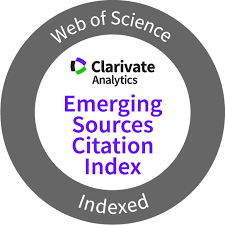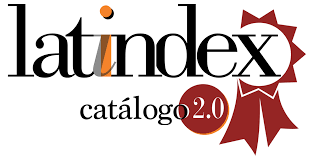A legitimidade através da comunicação no sector público: o caso da câmara municipal da Covilhã em tempos de Covid / Communicating for legitimacy in the public sector: The case of the Covilhã Municipality in Covid times
DOI:
https://doi.org/10.5783/revrrpp.v12i23.764Palabras clave:
Legitimidad, Covid-19, Câmara Municipal da Covilhã,Resumen
As organizações sentem crescentemente a necessidade de mostrar à sociedade as ações que realizam, assim como a sua preocupação com o ambiente envolvente de forma a legitimar a sua aceitação na comunidade, através do uso de técnicas de relações públicas para mediar esse processo comunicativo. Com o aparecimento da Covid-19, governo, entidades públicas e autarquias tiveram de ter especial atenção na maneira como prestam serviços e comunicam com os cidadãos para assegurar essa mesma legitimidade. A legitimidade como processo estratégico da comunicação num órgão autárquico é central neste estudo. No caso, analisar-se-á a legitimação através da comunicação do município a partir de uma entrevista de profundidade com o profissional responsável pela comunicação, da análise de conteúdo das notas de imprensa divulgadas pela Câmara Municipal da Covilhã, e com dados recolhidos em quatro focus group de modo a compreender os processos e as expectativas legitimativos da Câmara Municipal da Covilhã do ponto de vista dos cidadãos. Através do estudo deste caso, pode concluir-se que a comunicação da mesma não é planificada, nem gerida de forma estratégica. Embora consciente e apesar da autarquia comunicar regularmente nas redes sociais, as suas comunicações não chegam a todas as faixas etárias e são na sua maioria informativas. Os cidadãos mostram atribuir mais relevo a estruturas e líderes e menos a processos e resultados como dimensões da legitimidade.
Palabras claves: Legitimidade; Covid-19; relações públicas; comunicação estratégica; Câmara Municipal da Covilhã
Abstract
This paper seeks to understand whether there is a concern in a municipal body as the Covilhã City Council to legitimize itself; gauge how it legitimizes the public processes of urgent matters, such as the Covid-19 process; and find out which categories of moral legitimacy suggested by Suchman (1995) are more important for the citizens of the municipality. In this case, legitimation through municipal communication was analyzed based on an in-depth interview with the professional responsible for communication, content analysis of press releases released by Covilhã City Council, and with data collected in four focus groups in order to understand the legitimating processes and expectations from the citizens' point of view.
The results show that there an intention on legitimizing that is not translated in a strategic or tactical-planned way. Although there is an intense communication around the urgent public process, with about 14 press releases referring to it in the period of six months, these are limited to a more informative character and to the dissemination of activity and political decisions, rather than strategic or with contents that seek legitimization processes with implicit and/or symbolic dimensions. From the analysis of communication management, despite the professionalization and even a structure in the body in question, there is no decision-making autonomy, nor monitoring of the public or planning according to analyses. In this way, ad-hoc communication may mirror momentary mental strategies of the manager and the team of communication and public relations professionals, but does not consider an analysis of publics, nor the production of specific materials for each segment of citizens. These findings are in line with conclusions from studies of government communication, which suggest the need for a strategic and not only tactical approach to build intangibles (e.g. Sanders and Canel, 2013).
Furthermore, the study reveals that citizens have expectations in various dimensions, including public communication in awareness-raising processes and strategies with preference to better suited tools to all age groups. As a conclusion we can state that there is no satisfaction of the communicative needs and consequently legitimacy is in question.
The focus group analysis shows that younger citizens seek and expect communication processes at the level of the role of politicians and dialogical processes; the dialogical and procedural expectations decrease with the age of the groups. However, there is a predominance of structural legitimacy in all Portuguese groups, which mostly include national and regional bodies. The roles of local processes are left to the background. Consequential legitimacy has less relevance.
The professional practice of communication in the public sector in the case of Covilhã Municipality regarding Covid falls short of what is proposed by the academic discipline. This study contributed to reinforce the idea that legitimacy and legitimation processes are always contextual and dependent on the environment and that, therefore, without research on publics, strategic management and strategic plans it is not possible to have an effective communication management in the public sector.
Keywords: Legitimacy; Covid-19; public relations; strategic communication; Covilhã Municipality.
Descargas
Citas
AGGERHOLM, H., & THOMSEN, C. (2016). Legitimation as a Particular Mode of Strategic Communication in the Public Sector. International Journal of Strategic Communication, 10(3), 195–206. DOI: 10.1080/1553118X.2016.1176570
ARGENTI, P., HOWELL, R., & BECK, K. (2005). The strategic communication imperative. MIT Sloan Management Review, 46(3), 82-89. https://sloanreview.mit.edu/article/the-strategic-communication-imperative/
ASHFORTH, B., & GIBBS, B. (1990). The Double-Edge of Organizational Legitimation. Organization Science, 1(2), 177–194. DOI:10.1287/orsc.1.2.177
CAMILO, E. (1998). Estratégias de Comunicação Municipal: Uma reflexão sobre as modalidades de comunicação nos municípios. Coleção Estudos em comunicação. Covilhã: Universidade da Beira Interior.
CANEL, M., & LUOMA‐AHO, V. (2018). Legitimacy. In M. Canel & V. Luoma‐Aho. (Eds.), Public Sector Communication: Closing Gaps Between Citizens and Public Organizations. Wiley-Blackwell, 139-158.
CANEL, M., OLIVEIRA, E., & LUOMA-AHO, V. (2017). Exploring citizens’ judgments about the legitimacy of public policies on refugees. Journal of Communication Management, 21(4), 355–369. DOI: 10.1108/JCOM-02-2017-0025
CORREIA, A. (2020). Covid-19. O vírus surgiu na China, mas foi a partir da Europa que viajou pelo mundo. Jornal Expresso. Obtido em https://expresso.pt/coronavirus/2020-10-30-Covid-19.-O-virus-surgiu-na-China-mas-foi-a-partir-da-Europa-que-viajoupelo-mundo
COUTINHO, C., & CHAVES, J. (2002). O estudo de caso na investigação em Tecnologia Educativa em Portugal. Revista Portuguesa de Educação, 15(1), 221–243. http://repositorium.sdum.uminho.pt/handle/1822/492
DEEPHOUSE, D., & SUCHMAN, M. (2008). Legitimacy in organizational institutionalism. In R. Greenwood, C. Oliver, R. Suddaby & K. Sahlin. (Eds.), The Sage Handbook of Organizational Institutionalism (pp. 49-77). London: Sage.
DÍEZ-MARTÍN, F., BLANCO-GONZÁLEZ, A., & PRADO-ROMÁN, C. (2010). Legitimidad como factor clave del éxito organizativo. Investigaciones Europeas De Dirección y Economía De La Empresa, 16(3), 127-143. DOI: 10.1016/S1135-2523(12)60038-0
DIMAGGIO, P. J., & POWELL, W. W. (1983). The Iron Cage Revisited: Institutional Isomorphism and Collective Rationality in Organizational Fields. American Sociological Review, 48(2), 147. DOI:10.2307/2095101
DULEK, R., & CAMPBELL, K. (2014). On the Dark Side of Strategic Communication. International Journal of Business Communication, 52(1), 122–142. DOI: 10.1177/2329488414560107
HALLAHAN, K., HOLTZHAUSEN, D., VAN RULER, B., VERČIČ, D., & SRIRAMESH, K. (2007). Defining Strategic Communication. International Journal of Strategic Communication, 1(1), 3–35. DOI: 10.1080/15531180701285244
HAMILTON, E. (2006). An Exploration of the Relationship Between Loss of Legitimacy and the Sudden Death of Organizations. Group & Organization Management, 31(3), 327–358. DOI:10.1177/1059601106286885
LEIRIA, I., FIGUEIREDO, J., & PAES, C. (2020). Da peste antonina à covid-19. Veja esta história das pandemias. Jornal Expresso. Obtido em https://expresso.pt/coronavirus/2020-03-31-Da-peste-antonina-a-covid-19.-Veja-esta-historia-das-pandemias
LEV, B., & DAUM, J. (2004). The dominance of intangible assets: consequences for enterprise management and corporate reporting. Measuring Business Excellence, 8(1), 6–17. DOI: 10.1108/13683040410524694.
LÓPEZ, C., & CRESPO, M. (2017). Exploring the dynamics of the legitimacy judgment about the public sector: the case of the Spanish Ministry of Education and its media legitimacy (2011-2015). Communication & Society, 30(3), 215–228. DOI: 10.15581/003.30.3.215-228
LUSA (2020). Pandemia impulsiona crescimento do sector de grande consumo. Diário de Notícias. Obtido em https://www.dnoticias.pt/pais/pandemia-impulsiona-crescimento-do-sector-de-grande-consumo-ED6342789
OBSERVADOR (2020). Impacto económico da pandemia faz Portugal “reavivar memórias dolorosas”, segundo Financial Times. Observador. Obtido em https://observador.pt/2020/12/30/impacto-economico-da-pandemia-faz-portugal-reavivar-memorias-dolorosas-segundo-financial-times/
OLIVEIRA, E. (2017). Comunicação e legitimação no Terceiro Sector. In VOZES PLURAIS – a comunicação das organizações da sociedade civil. Lisboa: Sistema Solar.
REIS, B. (2017). Os conteúdos em análise - teoria e práticas da análise de conteúdo. Em J. Feijó (Coord.), Metodologias de investigação em Ciências Sociais (pp. 205-236). Lisboa: Editora Escolar.
STAKE, R. (1999). Investigación con estudio de casos (2ª ed.). Madrid: Morata.
SUCHMAN, M. C. (1995) Managing Legitimacy: Strategic and Institutional Approaches. Academy of Management Review, 20, 571-610. DOI: 10.2307/258788
TYLER, T. (2006). Psychological perspectives on legitimacy and legitimation. Annual. Review of Psychology, 57, 375-400. DOI: 10.1146/annurev.psych.57.102904.190038
WÆRAAS, A. (2010). Communicating Identity. Administration & Society, 42(5), 526–549. DOI: 10.1177/0095399710377435
WÆRAAS, A. (2020). Public Sector Communication and Organizational Legitimacy. In Luoma-Aho, V. & Canel, M. (Eds.), The Handbook of Public Sector Communication, 1ª ed (pp.45-58). Hoboken, NJ : Wiley-Blackwell. https://doi.org/10.1002/9781119263203.fmatter
WILKINSON, S. (1998). Focus group methodology: a review. International Journal of Social Research Methodology, 1(3), 181–203. DOI: 10.1080/13645579.1998.10846874
Descargas
Publicado
Cómo citar
Número
Sección
Licencia
Los autores que publican en esta revista están de acuerdo con los siguientes términos:- Los autores conservan los derechos de autor y garantizan a la revista el derecho de ser la primera publicación del trabajo al igual que licenciado bajo una Creative Commons Attribution License que permite a otros compartir el trabajo con un reconocimiento de la autoría del trabajo y la publicación inicial en esta revista.
- Los autores pueden establecer por separado acuerdos adicionales para la distribución no exclusiva de la versión de la obra publicada en la revista (por ejemplo, situarlo en un repositorio institucional o publicarlo en un libro), con un reconocimiento de su publicación inicial en esta revista.
- Se permite y se anima a los autores a difundir sus trabajos electrónicamente (por ejemplo, en repositorios institucionales o en su propio sitio web) antes y durante el proceso de envío, ya que puede dar lugar a intercambios productivos, así como a una citación más temprana y mayor de los trabajos publicados (Véase The Effect of Open Access) (en inglés).




